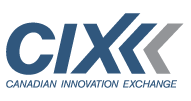 Chango has announced today that they have closed a $4.5 million B round that includes their existing investors as well as lead participation from Rho Ventures (Canada) and iNovia. Roger Chabra lead the deal for Rho and this represents his first placement since joining Rho Ventures last year.
Chango has announced today that they have closed a $4.5 million B round that includes their existing investors as well as lead participation from Rho Ventures (Canada) and iNovia. Roger Chabra lead the deal for Rho and this represents his first placement since joining Rho Ventures last year.
Christopher Dingle has also joined Chango from his role as EIR at iNovia (although he seems to have joined in October, so I am just catching up it seems). Notably absent from this round as well as the Series A is MantellaVP, who seem to be participating in the form of sweat equity but not in the form of capital placements as Duncan Hill is actively operating on the management team. Perhaps I am unclear as to Mantella’s model, I thought they were operating as a traditional fund but perhaps their model is changing. That could make sense as both Duncan Hill and Robin Axon have a lot to contribute in terms of operating capability.
Chango is an AdWords style platform for display (banner) advertising which is focused on low-latency ad targeting and serving across networks. As inventory has become realtime they are able to distribute highly targeted ads across that inventory. This sort of targeting was not possible in past models and Chango seems to be utilizing capital to stay ahead of the curve as more players enter the space. Chango also has the unique ability to automatically generate the banner ads being served.
The most important aspect of this deal is that Canadian capital is being put to work to power a high-potential company that otherwise likely would have closed a US focused deal. This type of growth capital was much less active just up until recently and it represents the critical role that iNovia, Rho and others are going to play in the Canadian landscape in the coming 5 years. The health of these funds is critical to our ability to create value based in Canada that can attach US and international markets with a comparable amount of resources. Albert Lai famously made a splash about the lack of growth capital in Canada in 2008 and it is my hope that the situation is now changing.




 I always like to say that a little vendetta is healthy for a startup. A vendetta, or
I always like to say that a little vendetta is healthy for a startup. A vendetta, or 
